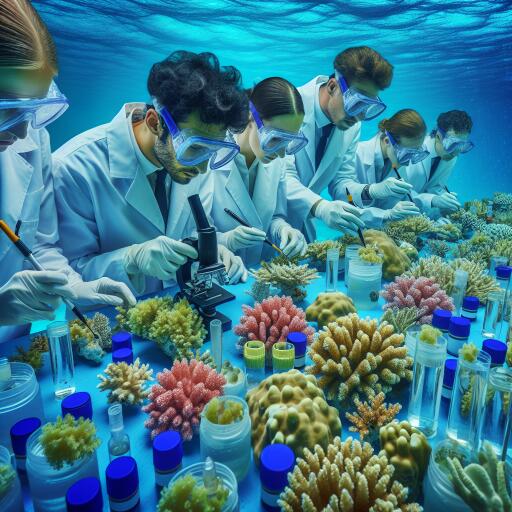
Study examines impact of coral chemical compounds on reef composition and health
At the heart of this study is the analysis of chemical exudates—substances produced and expelled by organisms—in this instance, those from various types of corals in the Caribbean. These chemicals play a pivotal role in shaping the microbial communities that coexist within the reef ecosystems. The research, conducted by a team at a prominent oceanographic institution, delves deep into the chemistry of the seas, examining the intricate dance between corals, the lifeblood of reefs, and the microorganisms that inhabit these waters.
Central to the study’s findings is the discovery that not all corals contribute the same to their environment. Indeed, the chemical composition of the exudates varies significantly among species. This variance suggests that as the reef’s coral population changes, so too does its chemical landscape, which in turn influences the makeup of microbial communities within the reef.
Interestingly, the study also reported a unique find: an invasive alga species, known for encroaching upon Caribbean coral reefs, exhibits the surprising behavior of releasing caffeine into the surrounding waters. This phenomenon, relatively unexplored within the marine context, mirrors the defensive strategies seen in some terrestrial plants. The caffeine production by this alga, speculated to deter predators and harmful microbes, underscores the alga’s invasive success and lays open new avenues for future research into its ecological impact.
The implications of this study extend beyond the biological and chemical intricacies of coral reef ecosystems. By identifying and understanding the chemical signals exchanged within these underwater communities, scientists hope to develop new methods for monitoring reef health. This emergent field of study aims to complement traditional, visually-based approaches with a molecular level analysis, potentially offering more immediate insights into coral well-being and the overall condition of these vital marine habitats.
Enhancing our reservoir of knowledge about the chemicals that influence microbial life on reefs offers a tantalizing glimpse into novel strategies for conservation and management. As one researcher puts it, the dream is to decipher the health of a reef ecosystem through a simple analysis of the water enveloping it, a testament to the pioneering spirit propelling this field of marine science forward.
Supported by leading scientific agencies, this research stands not just as a testament to the complexity and resilience of coral reefs but also highlights the ongoing need for in-depth study into the impacts of environmental change on marine ecosystems. As the planet faces unprecedented ecological shifts, understanding the undercurrents that govern life below the water’s surface has never been more critical.





Leave a Reply